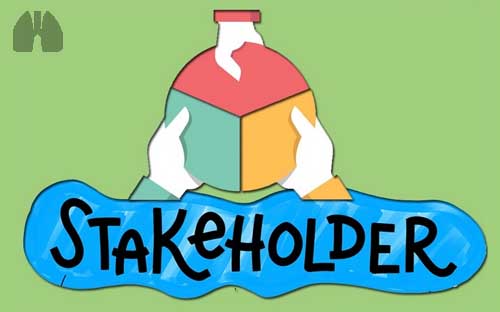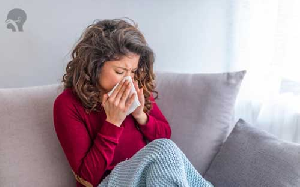
Between 15 and 17 July, WHO supported the Indonesian Ministry of Health (MoH) to conduct in-depth stakeholder meetings via video conference (VC) to review the health sector Operational Response Plan for COVID-19. The VC involved stakeholders from the Ministry of Health, National Board for Disaster Management (BNPB), Secretary Cabinet Office, National Planning Agency, Coordinating Ministry of Human Development and Culture, the armed forces, professional associations and other international partners including UNICEF, UN-OCHA, IFRC, WFP and ILO.
The virtual meeting aimed to gather inputs from across multiple sectors on the various COVID-19 response activities, identified gaps and proposed solutions to challenges. The contributions will be used to evaluate and improve the COVID-19 health sector response plan, aligning it with the WHO Strategic Preparedness and Response Plan for COVID-19. The outcomes from the review meeting will be used to feed into the broader multisector response plan developed by the COVID-19 Task Force under the overall coordination of BNPB.
During the VCs, WHO presented on the operational strategy guideline for COVID-19 preparedness and response. The guideline, released in late May, focused on nine key pillars to support countries in their readiness to respond to the global pandemic. Reflecting on the guideline, WHO emphasized the importance of regularly monitoring the response plan indicators. Relevant key stakeholders of each of the nine pillars shared respective insights on responses, gaps and challenges encountered since the outbreak of COVID-19 in Indonesia.
The Planning Bureau of the MoH introduced the Partners Platform; an online support tool for the coordination and monitoring of the COVID-19 preparedness and response plan at both the national and subnational levels. The Partners Platform has been used to host the COVID-19 response plan and to document the identified resource needs and gaps. The MoH has been assessing the response activities which are being implemented through the platform. The Partners Platform provides a standardized and harmonized framework for the process of reviewing COVID-19 operational plans in alignment with WHO and international health regulation core capacities.
The VCs also provided opportunity for the meeting participants to highlight a number of key response activities being implemented across the country:
- The Ministry of Health, in coordination with BNPB, is improving surveillance data reporting and laboratory capacity to better analyze the COVID-19 situation for more prompt response actions and optimal resource mobilization.
- The government’s All-record TC-19 Application is being used to compile data from health facilities, health offices and the national laboratory network to connect the hospital information system and Point of Entry information system. The Centre for Data and Health Information coordinates the COVID-19 data within MoH for further dissemination to other relevant sectors involved in the COVID-19 response.
- The MoH uses Influenza-Like Illness (ILI) and Severe Acute Respiratory Infection (SARI) sentinel surveillance for monitoring COVID-19 under the Global Influenza Sentinel Surveillance System (GISRS) Covid-19 platform. Presently, there are 27 ILI and six SARI sentinel sites across Indonesia collecting and testing for COVID-19.
- To strengthen medical response and infection control practices, the MoH is encouraging the application of standard precautions in all health facilities including primary healthcare centres, and both nonreferral and referral hospitals. Collaboration between primary healthcare centres, online or telemedicine services and community volunteers has been identified as a strategy to effectively triage patients and monitor COVID-19 contacts to reduce the burden faced by healthcare workers in health facilities.
- MoH has developed an online dashboard to calculate the forecasting of commodity needs using the WHO Essential Supplies Forecasting Tool (ESFT). Furthermore, local governments have established designated quarantine facilities and COVID-19 treatment centres. As of 12 July, Indonesia has 839 referral hospitals, 707 of which have been designated as COVID-19 referral hospitals, with a total of 24 715 isolation beds.
- Indonesia is participating in the Solidarity Trial to clinically evaluate potential treatments for the disease and compare the effectiveness of the local standard of care among patients hospitalized for COVID-19.Â
Â
Other efforts of the COVID-19 response include the dissemination of the fifth edition of the national COVID-19 guidelines, improving risk communication strategies through situation analysis and perception surveys, and multi-tier training by MoH targeting healthcare workers, laboratory personnel and volunteers. Focus has also been given to developing protocols to ensure the continuation of essential health services during the pandemic and integrating COVID-19 training into Nusantara Sehat, a programme placing healthcare workers at primary healthcare centres in remote areas.
Caption: The Ministry of Health presented information on referral hospital mapping during the virtual review of the Operational Response Plan held in July. Credit: Endang Wulandari / WHO
The stakeholder review revealed continuous efforts have been made by many partners to mobilize resources towards improving logistical coordination among COVID-19 responders and the distribution of vital supplies such as Personal Protective Equipment (PPEs), laboratory reagents, viral transport media, swabs and ventilators. Similarly, community-based surveillance has been improved through ongoing collaboration with volunteers to support COVID-19 data reporting and contact tracing and monitoring.
Throughout the meeting, it was reiterated how the Operational Response Plan COVID-19 should actively engage government, academic, community, business and media actors to achieve a comprehensive whole of society approach to the response effort.
WHO will continue to support Indonesia prepare for the country level Intra-Action Review (IAR). The IAR will draw from the country data available from the Partners Platform to identify practical areas for sustained improvement of the ongoing response efforts. The IAR will assist Indonesia to conduct periodic reviews of the national and subnational response plans to assess the various actions undertaken so far. These regular reviews will allow Indonesia to promptly identify gaps, opportunities for continued learning and best practices that will strengthen the Operational Response Plan and enable sustained improvement of the ongoing response to COVID-19.














